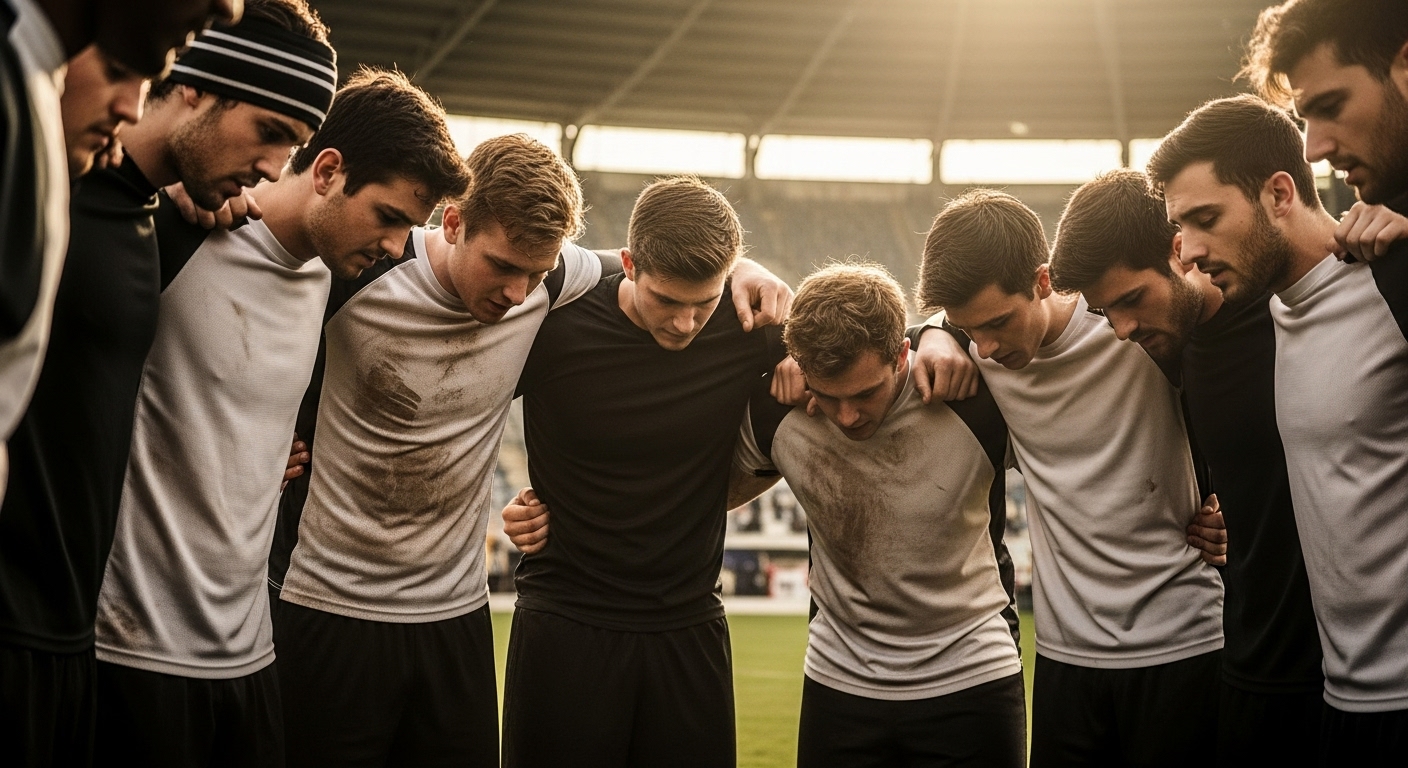Sports have a remarkable way of captivating global audiences, with the potential to unite people from all walks of life. They offer a platform for extraordinary displays of athleticism, but they also have a darker side—where moments of controversy can overshadow even the most spectacular feats. Whether it’s due to decisions made by officials, actions by athletes, or unforeseen incidents, some moments in sports history are forever etched in the collective memory not for the excellence of performance, but for the shockwaves they sent through the sports world.
In this blog post, we will explore some of the most controversial moments in sports. These incidents not only sparked debates among fans but also changed the way certain sports are played or perceived. Some are marked by questionable decisions, while others raised ethical concerns, leaving lasting impacts on the world of sports. Let’s take a deep dive into these moments that generated headlines and provoked emotions worldwide.
1. The Hand of God – 1986 FIFA World Cup
Arguably one of the most infamous moments in the history of soccer (football), Diego Maradona’s “Hand of God” is etched in sports folklore as a mix of brilliance and blatant cheating. During the 1986 World Cup quarterfinal match between Argentina and England, Maradona used his left hand to punch the ball into England’s net. Despite the clear violation, the referees did not see the infraction and allowed the goal to stand.
Maradona’s explanation afterward was iconic: “It was the hand of God,” a phrase that would haunt soccer fans for years to come. Argentina went on to win the match 2-1, and eventually, the World Cup, but the incident left many questioning the fairness of the game. The “Hand of God” remains one of the most debated moments in World Cup history and sparked major discussions about the need for technology in officiating, which would later lead to the implementation of VAR (Video Assistant Referee).
2. The 1994 NBA Finals: The O.J. Simpson Bronco Chase
While not directly tied to the action on the court, the 1994 NBA Finals was overshadowed by one of the most shocking events in American history—the O.J. Simpson car chase. On the night of Game 5 between the New York Knicks and the Houston Rockets, O.J. Simpson was infamously being chased by the police in a white Ford Bronco, live on national television.
The game was scheduled to air in prime time, but it was delayed for the chase, causing a shift in focus for millions of viewers. The spectacle of the chase—and the subsequent trial—overshadowed the game itself, which was already an intense matchup in the Finals. The distraction left a lasting imprint on the sports world, highlighting how sometimes events outside of sports can intrude upon major sporting events in unexpected ways.
3. The Malice at the Palace – 2004 NBA Brawl
Perhaps one of the most violent and shocking moments in sports history, the “Malice at the Palace” occurred during a regular-season NBA game between the Detroit Pistons and the Indiana Pacers on November 19, 2004. With only 45 seconds remaining, a hard foul by Pacers player Ron Artest (now Metta World Peace) on Pistons player Ben Wallace led to a series of altercations.
However, the incident escalated when Artest, lying on the scorers’ table, was struck by a fan who threw a drink at him. What followed was a full-blown brawl, with players and fans exchanging blows in the stands. Artest, Stephen Jackson, and Jermaine O’Neal were all involved in the melee, leading to suspensions and fines. The incident was a black eye for the NBA, raising serious questions about player behavior, fan interaction, and the overall security of sporting events.
The repercussions were far-reaching: the league implemented stricter security measures, harsher penalties for on-court conduct, and a change in the perception of the NBA as a whole. The “Malice at the Palace” remains a vivid example of how volatile the mix of intense competition and fan engagement can be.
4. Lance Armstrong and the Doping Scandal
Lance Armstrong was once considered one of the greatest cyclists of all time, but his reputation was forever tarnished when it was revealed that he had been doping throughout his career. Armstrong won the Tour de France seven times, a record-breaking achievement, but in 2012, the United States Anti-Doping Agency (USADA) concluded that Armstrong had been involved in an extensive doping program during his victories.
Armstrong initially denied the allegations, but he later confessed in a 2013 interview with Oprah Winfrey. His admission not only shattered the careers of those involved but also led to the stripping of his seven Tour de France titles. The scandal brought the issue of doping in professional sports to the forefront, making it a pivotal moment in the ongoing fight against performance-enhancing drugs. Armstrong’s fall from grace serves as a reminder of how cheating can erode the integrity of sports and the personal cost it exacts on athletes.
5. Tonya Harding and the Nancy Kerrigan Incident – 1994 Winter Olympics
The rivalry between American figure skaters Tonya Harding and Nancy Kerrigan took a dark turn leading up to the 1994 Winter Olympics. After Kerrigan had qualified for the U.S. Figure Skating Championships, Harding’s ex-husband, Jeff Gillooly, orchestrated an attack on Kerrigan, hitting her in the knee with a baton. The aim was to prevent Kerrigan from competing in the Olympics and thus increase Harding’s chances.
The attack left Kerrigan injured, but she was able to recover in time to compete and win a silver medal at the Winter Olympics. Harding, meanwhile, was implicated in the conspiracy to sabotage Kerrigan and was eventually banned from the U.S. Figure Skating Association. This scandal dominated the media leading up to the Games, forever changing the narrative of Harding’s career. It was a tragic example of how competitive jealousy and poor decision-making can lead to devastating consequences in the world of sports.
6. The “No Goal” in the 1999 Stanley Cup Finals
Hockey has long been a sport where controversial officiating decisions can spark outrage, and few moments stand out more than the disallowed goal in Game 6 of the 1999 Stanley Cup Finals between the Buffalo Sabres and the Dallas Stars. In overtime, with the score tied 1-1, Brett Hull of the Dallas Stars scored a goal that appeared to be legitimate. However, the controversy arose because Hull’s skate was in the crease when the puck went in, which, according to the rules at the time, should have been ruled no goal.
The officials allowed the goal to stand, and Dallas won the Stanley Cup. The decision sparked outrage, with Sabres fans arguing that the rule had been violated, and some even suggesting that the goal was the result of a “bad call.” The incident led to a review of the crease rule, and the league later modified the regulations to prevent similar controversies in the future.
7. Michael Jordan’s First Retirement – 1993
In 1993, Michael Jordan, the greatest basketball player of all time, shocked the sports world by announcing his first retirement from the NBA at the height of his career. Jordan’s decision came shortly after leading the Chicago Bulls to their third consecutive NBA championship. At the time, rumors swirled about the reasons behind his unexpected departure. Some speculated that it was due to burnout, while others pointed to his father’s tragic murder earlier that year as the catalyst for his decision.
The mystery surrounding Jordan’s retirement created an atmosphere of intrigue and speculation. It wasn’t until later that Jordan revealed he had lost the desire to play basketball after achieving everything he had set out to accomplish. His first retirement led to a major shift in the NBA, and his return in 1995 was one of the most anticipated comebacks in sports history.
8. The 2006 World Cup Final – Zinedine Zidane’s Headbutt
The 2006 FIFA World Cup Final between France and Italy is remembered for the extraordinary play of both teams, but it was marred by an unexpected moment of violence. In the 110th minute of extra time, French captain Zinedine Zidane, one of the greatest players of his generation, headbutted Italy’s Marco Materazzi in the chest after allegedly being provoked by an insult.
Zidane was shown a red card and sent off, leaving France to finish the match with ten players. Italy would go on to win in a penalty shootout, but Zidane’s final match was overshadowed by his sudden outburst. The incident sparked outrage across the globe, leaving fans to question what would have been Zidane’s legacy if he had played the entire final. Despite his achievements, Zidane’s headbutt remains one of the most controversial moments in World Cup history, encapsulating the fragile balance between passion, pride, and composure in elite sports.
9. The 1972 Munich Olympics and the Palestinian Terrorist Attack
One of the most tragic events in Olympic history occurred during the 1972 Summer Olympics in Munich, West Germany. During the Games, a Palestinian terrorist group called Black September took 11 members of the Israeli Olympic team hostage, ultimately killing them. The horrific attack lasted for over 24 hours and shocked the world, putting an immediate and tragic end to what was supposed to be a celebration of international unity.
The Munich massacre deeply affected the global sports community, leading to heightened security measures at future Olympic Games and a reevaluation of the role sports could play in fostering peace. The attack is a stark reminder of how sports can be intertwined with geopolitical events, sometimes leading to moments that are beyond the realm of athletic competition.




